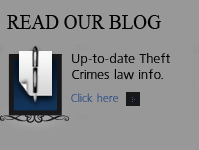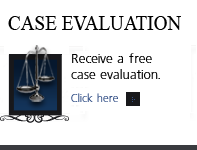

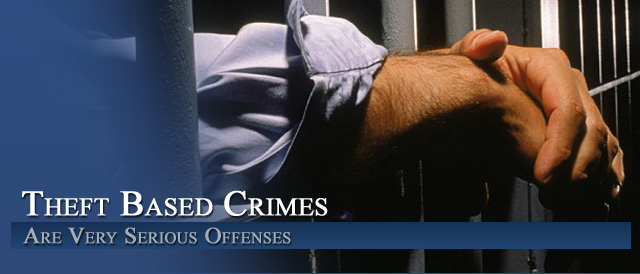

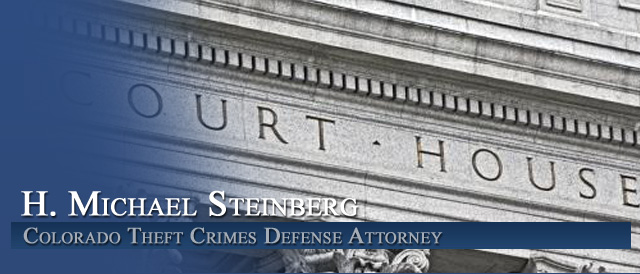
Colorado Theft – Statute Of Limitations Starts At “Discovery Of The Crime” – 16–5–401 And 18-4-401
By H. Michael Steinberg – A Colorado Theft Crimes Criminal Defense Lawyer – Attorney
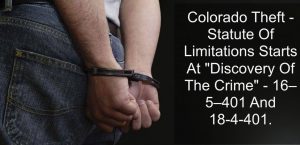 Colorado Theft – Statute Of Limitations – Starts At “Discovery Of The Crime” – 16–5–401 And 18-4-401 – There are approximately 21 crimes that exceed the standard 3 year statute of limitations because the statute of limitations for these special crimes (such as theft, forgery, bribery and securities fraud, begins to run, not when the crime was allegedly committed, but when the crime was “discovered.”
Colorado Theft – Statute Of Limitations – Starts At “Discovery Of The Crime” – 16–5–401 And 18-4-401 – There are approximately 21 crimes that exceed the standard 3 year statute of limitations because the statute of limitations for these special crimes (such as theft, forgery, bribery and securities fraud, begins to run, not when the crime was allegedly committed, but when the crime was “discovered.”
The largest generic group of crimes falling into this exception is Theft under C.R.S. 18-4-401.
The Colorado Supreme Court has stated that criminal statutes of limitation like section 16-5-401 serve the following purposes:
(1) to protect individuals from defending themselves against stale charges;
(2) to prevent punishment for acts committed in the remote past; and
(3) to insure that accused’s are informed of the decision to prosecute and the general nature of charges with sufficient promptness to allow them to prepare their defenses before evidence of their innocence is weakened by age.
Lets start with a look at an excellent chart summary of Colorado’s criminal statute of limitations:
Colorado’s Criminal Statute Of Limitations 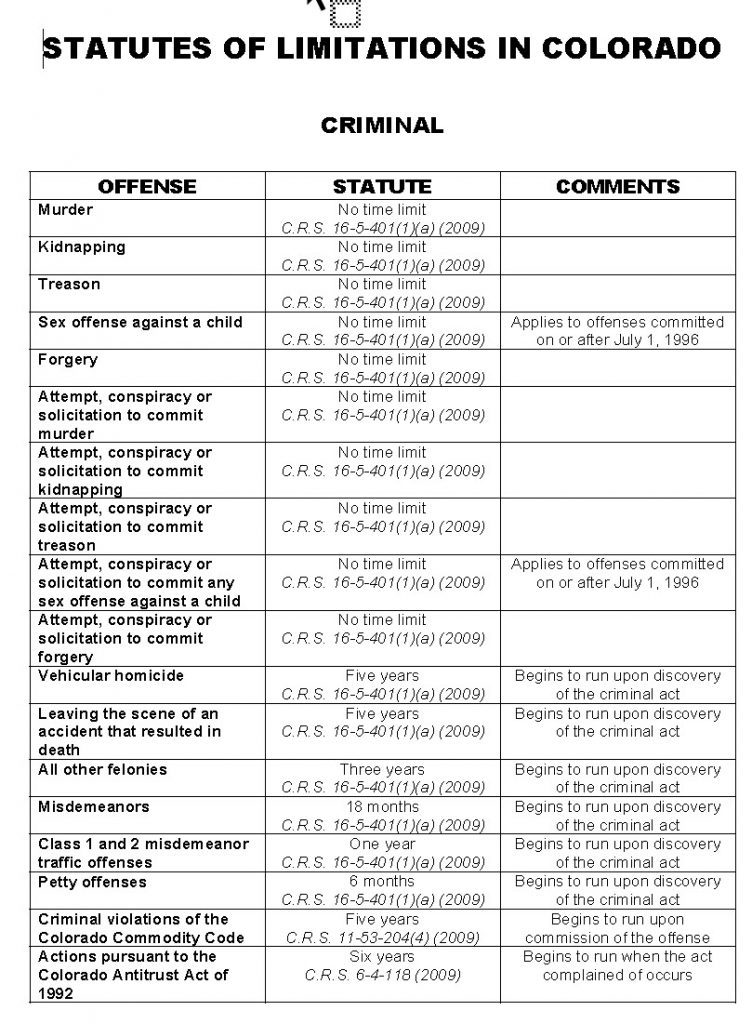
A statute of limitations is a law that sets a specific period if time during which charges must be filed. Colorado’s statutes of limitations will vary with the crime charged as the above chart demonstrates.
A “tolling provision” in a statute of limitations provides that the period within which prosecution must normally be commenced … is tolled – that is – the statute time clock only begins “to run” upon the “discovery” of the criminal act in question.
The crime of theft is on the list of 21 crimes and, like the other crimes listed, supports a public policy concern behind the inclusion of a “discovery tolling provision” in a statute of limitations because theft is the kind of crime that is often hidden or covered up.
Colorado’s statute of limitation is clear and unambiguous. If the Government prosecutes a theft charge under 18-4-401 and the prosecution is commenced within three years of the discovery of the alleged crime, it is within the statute of limitations.
The elements of the Colorado crime of Theft are:
(1) knowingly obtaining or exercising control over;
(2) anything of value;
(3) of another;
(4) without authorization, or by threat or deception; and
(5) with the intent to deprive the other person permanently of the use or benefit of the thing of value. § 18-4-401(1)(a)
Theft is included in the discovery exception to the running of the statute of limitations – but for reasons that are not always clear – other kinds of theft such as aggravated motor vehicle theft pursuant to § 18-4-409 is not and neither is theft against an at-risk adult pursuant to § 18-6.5-103. Both of these crimes are not among the enumerated crimes listed in the “discovery – tolling provision”.
What ARE The Colorado Crimes Included In The Discovery Exception To The Statute Of Limitations?
Here is the relevant section of the Colorado Statute Of Limitations Section 16-5-401 C.R.S.
16–5–401 (4.5) C.R.S. Criminal Proceedings § 16-5-401 Limitation for Commencing Criminal Proceedings and Juvenile Delinquency Proceedings
….
(4.5) The period within which a prosecution must be commenced begins to run upon discovery of the criminal act or the delinquent act for:
(a) Offenses relating to the “Uniform Commercial Code”, pursuant to part 5 of article 5 of title 18, C.R.S.;
(b) Computer crime, pursuant to article 5.5 of title 18, C.R.S.;
(c) Theft, pursuant to section 18-4-401, C.R.S .;
(d) Theft of trade secrets, pursuant to section 18-4-408, C.R.S .;
(e) Defacing or destruction of written instruments, pursuant to section 18-4-507, C.R.S .;
(f) Criminal simulation, pursuant to section 18-5-110, C.R.S .;
(g) Obtaining signature by deception, pursuant to section 18-5-112, C.R.S .;
(h) Criminal impersonation, pursuant to section 18-5-113, C.R.S .;
(i) Offering a false instrument for recording, pursuant to section 18-5-114, C.R.S .;
(j) Dual contracts to induce loan, pursuant to section 18-5-208, C.R.S .
(k) Issuing a false financial statement or obtaining a financial transaction device by false statements, pursuant to section 18-5-209, C.R.S .;
(l) Unlawful activity concerning the selling of land, pursuant to section 18-5-302, C.R.S .;
(m) Offenses relating to equity skimming, pursuant to part 8 of article 5 of title 18, C.R.S.;
(m.5) Offenses relating to identity theft, pursuant to part 9 of article 5 of title 18, C.R.S.;
(n) Offenses relating to bribery and corrupt influences, pursuant to part 3 of article 8 of title 18, C.R.S.;
(o) Offenses relating to abuse of public office, pursuant to part 4 of article 8 of title 18, C.R.S.;
(p) Offenses relating to perjury, pursuant to part 5 of article 8 of title 18, C.R.S.;
(q) Offenses relating to the “Colorado Organized Crime Control Act“, pursuant to article 17 of title 18, C.R.S.;
(r) Unlawful concealment of transactions, pursuant to section 11-107-105, C.R.S .;
(s) Embezzlement or misapplication of funds, pursuant to section 11-107-107, C.R.S .;
(t) Unlawful acts or omissions relating to financial institutions, pursuant to section 11-107-108, C.R.S .;
(v) Criminal offenses relating to savings and loan associations, pursuant to section 11-41-127, C.R.S .; and
(w) Criminal offenses relating to securities fraud, pursuant to part 5 of article 51 of title 11, C.R.S.
A Closer Look Toward A Better Understanding The Goals Of “The Discovery Exception” To The Colorado Statute Of Limitations
The legislative history underlying the goals of the “discovery exception” to the Colorado statute of limitations reflects a clear concern that through deception a crime such as theft can be “buried” in financial records for a very long time.
The “discovery” tolling provision therefore is intended to prevent the surreptitious and clever person from the kind of windfall that would occur through successfully concealing their criminal conduct from their victim.
On the other hand it is recognized at law that it would be also be unfair for the State to use this provision to allow a Prosecutor extend the time in which to file charges based solely on alleged victim’s statement that he or she did not subjectively know of the crime had occurred.
To allow a lengthy delay in bringing charges would violate the foundational policies underlying the need for statutes of limitation which, once again, are:
1. To sanction the prosecution of stale charges,
2. To allow punishment for acts committed in the remote past, and
3. To hinder Defendants’ ability to prepare their defenses before evidence of their innocence is weakened by age. (16-5-401 C.R.S.)
For these reasons, the law defines when an alleged “victim” should have “discovered” the an alleged crime from the list above.
When Should The Alleged Victim Have “Discovered” The Crime Under 16-5-401 C.R.S.?
The phrase “discovery of the criminal act” as used in section 16-5-401(4.5) (above), refers to that point in time when an alleged victim or the state of Colorado should have known – “through the exercise of reasonable diligence” of the facts establishing the crime at issue… such as the crimes of theft, or bribery, or for identity theft …or any of the 21 enumerated crimes.
A Colorado Trial Judge determines when the “should have discovered” moment in time occurs at trial based upon the disputed undisputed facts. That moment in time starts the clock running. The analysis is at the discretion of the Judge and can be done by adversarial hearing before trial, at any point during the trial or after all of the evidence has been concluded.
This is an “objective” not a “subjective” test. Knowledge on the part of the victim that one of the enumerated crimes has occurred requires the start the clock running on the Statute of Limitations when a victim has possession of all of the factual information that would reveal the crime (such as theft), “if reasonable diligence” has been exercised.
At this critical point in time – the Statute of Limitations begins to run. It is not that point in time necessarily when THIS victim alleges discovery of the crime – but when a reasonable victim should have discovered the crime.
So here is “the rub.” Do not be lulled into the belief that “the “statute” (the statute of limitations) “must have run by now” on the one hand and on the other, never dismiss asserting that defense without double checking every fact in the State’s case.
Asserting the statute of limitations as a defense is a critically important to a Defendant charged with a serious felony crime such as Theft under Section 18-4-401.
Colorado Theft – Statute Of Limitations Starts At “Discovery Of The Crime” – 16–5–401 And 18-4-401
If you found any of the information I have provided on this web page article helpful please click my Plus+1 or the Share buttons for Twitter and Facebook below so that others may also find it.
The contents of this article are based upon my research, my personal experience and my personal analysis and opinions developed from my thirty six years (as of 2017) of criminal trial experience from both sides of the courtroom – as a former career prosecutor for Arapahoe and Douglas Counties (13 years) and as the owner of my own Criminal Defense Law Firm since 1999 (18 years).
The reader is also admonished that Colorado criminal law, like criminal law in every state and at the Federal level, changes constantly. The article appearing above was accurate at the time it was drafted but it cannot account for changes occurring after it was uploaded.
If, after reading this article, you have questions about your case and would like to consider retaining our law firm, we invite you to contact us at the Steinberg Colorado Criminal Defense Law Firm – 303-627-7777.
Never stop fighting – never stop believing in yourself and your right to due process of law. You will not be alone in court, H. Michael will be at your side every step of the way – advocating for justice and the best possible result in your case. H. Michael Steinberg is passionate about criminal defense. His extensive knowledge and experience of Colorado Criminal Law gives him the edge you need to properly handle your case
 ABOUT THE AUTHOR: H. Michael Steinberg – Email The Author at:
ABOUT THE AUTHOR: H. Michael Steinberg – Email The Author at:
A Denver Colorado Criminal Defense Lawyer – or call his office at 303-627-7777 during business hours – or call his cell if you cannot wait and need his immediate assistance – please call 720-220-2277.
“A good criminal defense lawyer is someone who devotes themselves to their client’s case from beginning to end, always realizing that this case is the most important thing in that client’s life.”
You should be careful to make a responsible choice in selecting a Colorado Criminal Defense Lawyer. We encourage you to “vet” our firm. Over the last 36 plus years – by focusing ONLY on Colorado criminal law – H. Michael has had the necessary time to commit to the task of constantly updating himself on nearly every area of criminal law, to include Colorado criminal law and procedure and trial and courtroom practice.
Putting more than 36 years (2017) of Colorado criminal defense experience to work for you.
H. Michael works hard to get his clients the best possible results in and out of the courtroom. He has written, and continues to write, extensively on Colorado criminal law and he hopes this article helps you in some small way – Colorado Theft – Statute Of Limitations Starts At “Discovery Of The Crime” – 16–5–401 And 18-4-401.
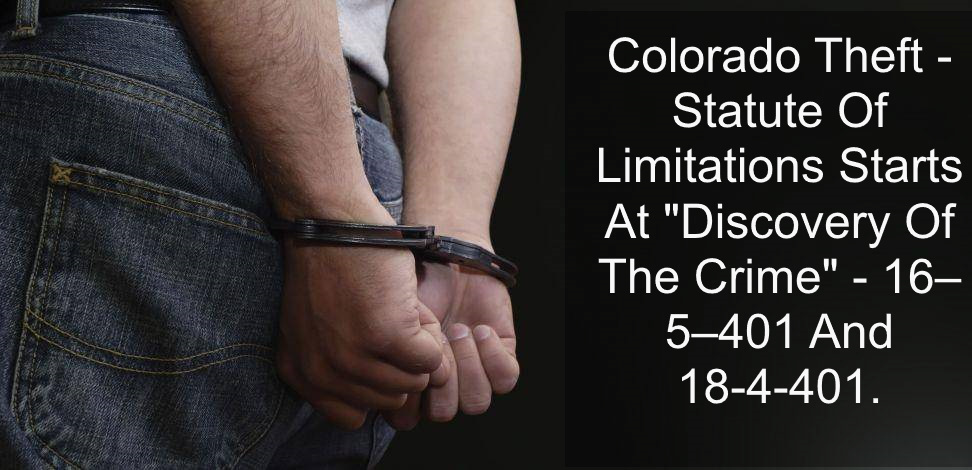
Other Articles of Interest:
- 2014 Criminal Court Deadlines Under Colorado Criminal Law – When You Have To File – What You Have To Do
- Theft of Trade Secrets 18-4-408
- Colorado Expedited Sealing Law – 24-72-702.5 – Unexpected Delays In Certain Cases
- Colorado Criminal Theft Law – A Civil Suit For Theft 18-4-405- Treble Damages – The Other Shoe Drops
- What Happens When Colorado Criminal Laws Change – Cui Bono? (Who Benefits)

